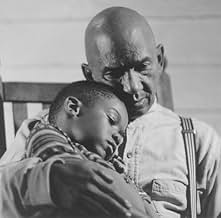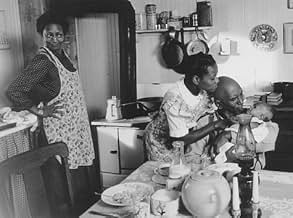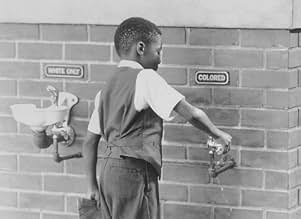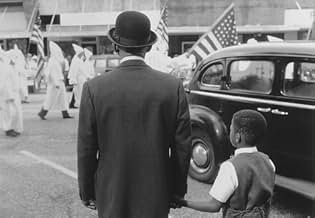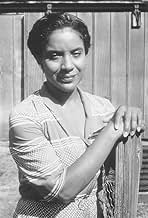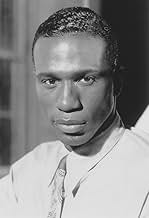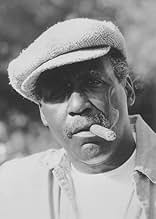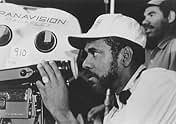Agrega una trama en tu idiomaA narrator tells the story of his childhood years in a tightly knit Afro-American community in the deep south under racial segregation.A narrator tells the story of his childhood years in a tightly knit Afro-American community in the deep south under racial segregation.A narrator tells the story of his childhood years in a tightly knit Afro-American community in the deep south under racial segregation.
- Premios
- 3 premios ganados y 2 nominaciones en total
Salli Richardson-Whitfield
- Miss Alice
- (as Salli Richardson)
Ray J
- Cliff (12 Yrs.)
- (as Willis Norwood Jr.)
Frank Hoyt Taylor
- Straw Boss
- (as Frank Taylor)
- Dirección
- Guionistas
- Todo el elenco y el equipo
- Producción, taquilla y más en IMDbPro
Opiniones destacadas
"Once Upon a Time... When We Were Colored" is a nice movie. It's tame, calm, and largely uneventful which makes it nothing more than nice. It's about a Black boy's growing up in the South during the Jim Crow era. It's devoid of any real drama considering we're talking about Black folks trying to survive in the South. The movie has some fine actors in it and I believe they did the best they could with the script. Unfortunately, it was a weak script. I think this movie would've done well as a book, but not all books need to be made into movies.
7calm
This was a very nice, scaled down version of how it really was in the Deep South. The movie did not even begin to depict the real horror Blacks faced each day. There was just a hint of the KKK, Jim Crow and the plantation mentality Blacks had to endure. I kept waiting for those historical, explosive events, we all knew to be the law of the land, to explode onto the screen, but it never happened.
Life was unbearable; Blacks were looked upon as animals and treated as such. I walked away from this movie feeling like life was almost a bowl of cherries.
I find it so odd that people are tired of hearing about the Black experience but never get tired of all the holocaust movies. 6 million Jews were slaughtered over a 6 year period (approx) -- hundreds of thousand Blacks were hung, beaten, raped, shot, humiliated and abused to death over a period of 150+ years, not to mention the suicides that took place on the slave ships in route to America. Admittedly, the holocaust was an atrocity, hopefully never to be repeated, while discrimination of Blacks is still a reality. Too bad there are no great movies that tell the Black Plight the way it should be told.
Life was unbearable; Blacks were looked upon as animals and treated as such. I walked away from this movie feeling like life was almost a bowl of cherries.
I find it so odd that people are tired of hearing about the Black experience but never get tired of all the holocaust movies. 6 million Jews were slaughtered over a 6 year period (approx) -- hundreds of thousand Blacks were hung, beaten, raped, shot, humiliated and abused to death over a period of 150+ years, not to mention the suicides that took place on the slave ships in route to America. Admittedly, the holocaust was an atrocity, hopefully never to be repeated, while discrimination of Blacks is still a reality. Too bad there are no great movies that tell the Black Plight the way it should be told.
"Once Upon a Time When We Were Colored" (1996): Set in the deep American South, over the years 1946-1962, and told as biography, this is the story of one boy's memories of being raised in the Cotton & Bible Belt. He's poor, his family is in pieces, he's Black, he's surrounded by the KKK
and yet, this is a soft, even soft-focus look back at the people who DID provide community family, did not dwell on their poverty nor make their race the focal point of a normal day. We are so accustomed to angry, relentlessly violent films about the racial divides, this film could easily be taken as a Hallmark Card presentation
but SOMETHING about it tells me otherwise. Yes, problems are depicted, and yes, the times they were a-changin', but not as fast or dramatically as we've come to accept from the quick flip of a few pages in history class. I LIKE the pace of this film. It's slow, warm, often funny, occasionally sugary, sometimes sad or maddening, but for the most part it's a nostalgic look back at the GOOD parts of black author's childhood.
Tim Reid has not been that guy from WKRP' for some time now. And no, he wasn't Isaac on The Love Boat either. He still finds himself in too many schlocky TV movies, and weak situation comedies. One must pay the rent, and no one can argue with that.
More and more a champion of black film, he has been careful, deliberate in his choice of projects. Once Upon a Time When We Were Colored, elevates him, appropriately, as a serious filmmaker, black, white, or otherwise.
This is not a new' film, but it is a different approach. An insightful look into Afro-American existence during turbulent times, the focus is on the community, rather than the oppression, the individuals rather than the cause. The result is every bit as effective in getting the message across. You get more flies with honey '
Al Freeman Jr. gets a well-deserved opportunity to show that he's not just some kind of TV Morgan Freeman. His portrayal of Poppa, the family patriarch is wonderful and slighted unfortunately by the Academy. Even the Image awards overlooked him, preferring to bestow honor on the over-cooked and under-talented Phylicia Rashad, one of the only weak links in this strong cast. Bernie Casey and Richard Roundtree both play well against their macho-type.
Don't expect to be hit over the head with the ideas of this film. Just let it ease you on down the road, and, take a look around, every so often as you do.
More and more a champion of black film, he has been careful, deliberate in his choice of projects. Once Upon a Time When We Were Colored, elevates him, appropriately, as a serious filmmaker, black, white, or otherwise.
This is not a new' film, but it is a different approach. An insightful look into Afro-American existence during turbulent times, the focus is on the community, rather than the oppression, the individuals rather than the cause. The result is every bit as effective in getting the message across. You get more flies with honey '
Al Freeman Jr. gets a well-deserved opportunity to show that he's not just some kind of TV Morgan Freeman. His portrayal of Poppa, the family patriarch is wonderful and slighted unfortunately by the Academy. Even the Image awards overlooked him, preferring to bestow honor on the over-cooked and under-talented Phylicia Rashad, one of the only weak links in this strong cast. Bernie Casey and Richard Roundtree both play well against their macho-type.
Don't expect to be hit over the head with the ideas of this film. Just let it ease you on down the road, and, take a look around, every so often as you do.
The author's stated intention was to show the family that nourished him and protected him from the world of hatred and segregation. The film showed just enough of the segregated life to let the viewer know that Cliff needed to be protected from that world and nurtured to overcome the scars that outside world could inflict. I think Taulbert and the movie did a good job of showing how the love of his immediate and extended family could compensate in some way for the hatred and oppression of the outside world. I hate to see the movie berated for not being a documentary of all the hateful excesses of the segregated South when that was not the movie's intent. We have films that are considered classics that are about different parts of World War II, and they don't document all the atrocities of the Holocaust. Not focusing on parts of an era that are not the main point of the film is not "sugarcoating." It's an excellent film about growing up in a loving family and overcoming challenges through the love and support of others. It's fine the way it is.
¿Sabías que…?
- TriviaWhen Melvin tells the group of elders all the benefits of living up North, he says that Colored men even drive buses. Preacher Hurn replies "Shut yo' mouth!" Isaac Hayes wrote the theme to Shaft (1971), and Richard Roundtree played the titular character.
- Bandas sonorasMaybe Tomorrow
Written and Performed by Lionel Cole
Selecciones populares
Inicia sesión para calificar y agrega a la lista de videos para obtener recomendaciones personalizadas
- How long is Once Upon a Time... When We Were Colored?Con tecnología de Alexa
Detalles
Taquilla
- Total en EE. UU. y Canadá
- USD 2,291,255
- Fin de semana de estreno en EE. UU. y Canadá
- USD 75,675
- 28 ene 1996
- Total a nivel mundial
- USD 2,291,255
Contribuir a esta página
Sugiere una edición o agrega el contenido que falta

Principales brechas de datos
By what name was Once Upon a Time... When We Were Colored (1995) officially released in Canada in English?
Responda

